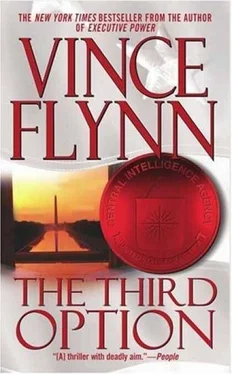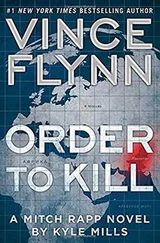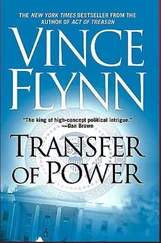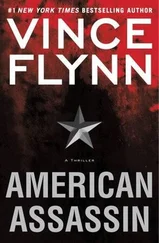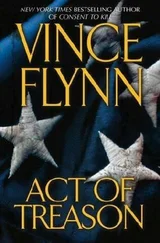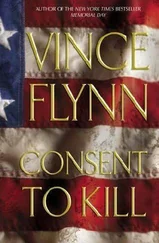Peter Cameron was in the back seat watching the two men fidget. He had seen them take the speed but said nothing. He knew why they did it, and he himself was wondering why he didn't take one when they'd offered it to him. He had been up all night with Duser planning what they were going to do, and in an effort to stay awake, he drank a few too many cups of coffee. Now he had to go to the bathroom but didn't dare leave the vehicle. It was getting light out, and their target would be along shortly:
Before leaving Colorado on Sunday, Cameron had stepped away from Villaume and his people and made a phone call. It was to Duser. Cameron hadn't been given the order to take out Villaume and his people yet, but he thought he would be proactive. Cameron told him where and when they would be landing and whom he wanted followed. When they'd touched down at the Montgomery County Airpark, Duser and his people had been waiting. They'd placed transponders on eight different suspected cars in the parking lot. When Villaume, Juarez, and Lukas left the airport, Duser and his men followed. They stayed a good way back and let the transponders do the work. Juarez parked her car on the street right in front of her apartment, very stupid on her part. Lukas parked his eight blocks away, and they'd lost him. On Monday, one of Duser's people reestablished contact with the massive man, and now they knew where he lived. Villaume had vanished into thin air. The car he had taken from the airport was still under surveillance, and they were canvassing the neighborhood where it was parked but had yet to come up with anything.
This didn't really bother Cameron. He didn't think much of Villaume. Without Mario Lukas, the man was a bear without claws. Cameron was convinced that Villaume would run scared as soon as he found out his old friend was dead.
Duser heard the call come in over his earpiece and glanced over at Wally McBride. McBride nodded and got out of the car. Mario Lukas was headed in their direction. Duser had three vehicles and six people in the area. If they were lucky, he was on his way to the same bakery he had gone to the morning before. The plan was to distract Lukas and take him from behind. The job of distracting Lukas fell on the shoulders of Sandra Hickock, a former stripper and vivacious beauty whom Duser had personally recruited and trained.
THE STREETS WERE empty for the most part. The streetlights were still on but weren't needed. The sun would be up in another fifteen minutes. Mario recognized a neighbor who was out taking her poodle for a walk. As they neared, he touched the brim of his hat and nodded. Mario had learned long ago that his size was very intimidating to people. Sometimes this was a good thing, and sometimes it wasn't. The woman smiled back as they passed. A block later, Mario took a right. He never walked the same route to the bakery each morning.
An early-morning jogger was running toward him on the opposite side of the street. Mario thought he looked vaguely familiar. He continued on, looking at the parked cars and checking over his shoulder every half block or so. He made one last turn, and the bakery was just ahead on his right. When he was midway down the block, a woman rounded the corner up ahead and started toward him. She had her arms folded across her chest, and her hands were stuck under her armpits. She looked cold despite the fact that it was a relatively mild morning. Mario noted her clothes and her obvious beauty, even at this distance. This was a woman he would have remembered seeing. As they drew closer, the woman looked up, brushed some of her long black hair from her face, and smiled.
The warning bells went off immediately in Mario's large, head. While looking quickly over his shoulder, he slid his right hand under his untucked shirt. There was a man rounding the comer behind him, and he was moving fast. Mario snapped his head back around, first checking if there was anything across the street and then looking back to the woman, who was still smiling. A blue U.S. Postal Service box was just up ahead. Mario picked up the pace and moved to his right while he drew the 9-mm Colt 2000. The smile on he woman's face vanished at the sight of the gun. She started to unfold her arms. Mario noticed a black object in her right hand, and before she could bring the weapon to bear, Mario had the Colt up and leveled. He squeezed the trigger once, the loud crack of the automatic pistol echoing off the of the brick apartment buildings.
The bullet struck the woman in the face. Mario went into a crouch and ducked between two parked cars. Before he could turn to search out the man, a hail of bullets sliced through the hood of the car just behind him. Keeping his head down, Mario lifted the gun up and fired three shots down the sidewalk. As he brought the gun back down, he heard an engine revving and tires squealing. Bullets continued to thump into the cars around him.
DUSER WAS PUSHING the gas pedal to the floor. He yelled into his lip mike, «Keep him pinned down, I'll be there in a second!» The Durango skidded around the corner. He rolled down the driver's side window and got ready to shoot. Up ahead on his left he could see glass flying as bullets smashed into the windshield of a parked car. Duser stuck his compact Steyr submachine gun out the window and started firing. As he neared the spot, he slammed on the brakes and brought the truck to a stop. Dead in his sights, crouched down behind the trunk of the car, was Mario Lukas. Duser held the trigger down and emptied the remainder of the twenty-five-round magazine into the man's broad back. Lukas slumped over and fell facedown in the gutter.
Senator Clark's limousine pulled into the Congressional Country Club and started up the drive. The golf course, originally designed by Devereaux Emmett and later redesigned by Donald Ross, Robert Trent Jones, and, more recently; Rees Jones, was one of the finest courses in the country. The limo veered to the right and passed the starters' shack. Four golfers dressed in sweaters and wind shirts stood on the first tee. Clark frowned. He'd have to see if he could clear his schedule this afternoon and sneak in eighteen. It looked as if it was going to be a beautiful day: The car continued around the circle drive and stopped in front of the classic Mediterranean-style clubhouse. The senator thanked his driver and told him he'd be no more than an hour.
Once inside, Clark headed downstairs to a private meeting room he'd reserved. He was flanked, as he wove his way through the maze of hallways, by black-and-white photographs laying out the history of the club – President Calvin Coolidge on opening day in 1923, U.S. Open and Kemper Open photos, and Clark's favorite, a shot of the course during World War II when it had been turned into a training camp for OSS spies.
Clark entered the windowless meeting room to find Congressman Rudin and Secretary of State Midleton in heated debate. Clark said hello and stopped at the side buffet to grab a bagel and a bowl of cereal. Before sitting down, he filled up a glass with cranberry juice and signed the ticket. Both Rudin and Midleton were members of the club, but in the twenty-some years that Clark had known them, he had yet to see either of them pick up the tab for anything. The two men were cheap in different ways. Rudin was a simple spendthrift, whereas Midleton was from Mayflower stock. He'd been raised in the way of the Daughters of the American Revolution. His family was royalty, and royalty didn't carry cash, nor did they pick up the tab. So once again, it fell on the shoulders of the boy who'd been raised by two alcoholics in a trailer.
Despite the huge social chasm that lay between them, Clark was by far the wealthiest of the three men. With a net worth in excess of one hundred million dollars, he was one of the top five wealthiest politicians in Washington. Midleton had his precious estate that had been passed down to him. It was worth eight million dollars, pitiable by today's new standards of wealth. Midleton was very proud of the fact that he'd never touched the principal in his inheritance. The money was handled by the same bank that had managed Midleton's great-great-grandfather's money; Clark had done some checking. The portfolio had shown a laughable return of eight percent over the last decade. It seemed the secretary of state invested his money the old-fashioned way; He paid huge fees to stodgy old bankers who put his money into tax-free municipal bonds and a few old stalwart utilities.
Читать дальше
